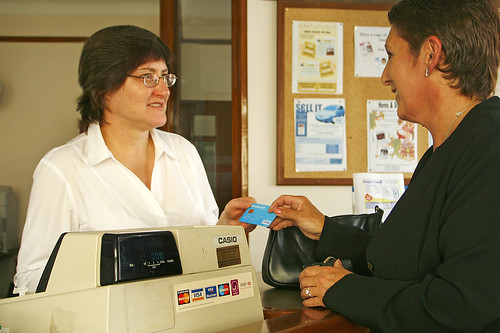- Bad. My 3yr old knows how the Nationwide commercial ends…including the agent's name. Too much TV. #
- RT @MoneyCrashers: Money Crashers 2010 New Year Giveaway Bash – $9,100 in Cash and Amazing Prizes http://bt.io/DZMa #
- Watching the horrible offspring of Rube Goldberg and the Grim Reaper: The Final Destination. #
- Here's hoping the franchise is dead: #TheFinalDestination #
- Wow. Win7 has the ability to auto-hibernate in the middle of installing updates. So much for doing that when I leave for the day. #
- This is horribly true: Spending Other People's Money by @thefinancebuff http://is.gd/75Xv2 #
- RT @hughdeburgh: "You can end half your troubles immediately by no longer permitting people to tell you what you want." ~ Vernon Howard #
- RT @BSimple: The most important thing about goals is having one. Geoffry F. Abert #
- RT @fcn: "You have enemies? Good. That means you've stood up for something, sometime in your life." — Winston Churchill #
- RT @FrugalYankee: FRUGAL TIP: Who knew? Cold water & salt will get rid of onion smell on hands. More @ http://bit.ly/WkZsm #
- Please take a moment and vote for me. (4 Ways to Flog the Inner Impulse Shopper) http://su.pr/2flOLY #
- RT @mymoneyshrugged: #SOTU 2011 budget freeze "like announcing a diet after winning a pie-eating contest" (Michael Steel). (via @LesLafave) #
- RT @FrugalBonVivant: $2 – $25 gift certificates from Restaurant.com (promo code BONUS) http://bit.ly/9mMjLR #
- A fully-skilled clone would be helpful this week. #
- @krystalatwork What do you value more, the groom's friendship or the bride's lack of it?Her feelings won't change if you stay home.His might in reply to krystalatwork #
- I ♥ RetailMeNot.com – simply retweet for the chance to win an Apple iPad from @retailmenot – http://bit.ly/retailmenot #
- Did a baseline test for February's 30 Day Project: 20 pushups in a set. Not great, but not terrible. Only need to add 80 to that nxt month #
A Brighter Future: 3 Simple Things Parents Can Do to Make a Difference
 [Editor: This is a guest post from my good friend Terra. I’ve know her for–jeez, really–20 years. If you’re looking for a staff writer, hit her up. Seriously. She’s good people.]
[Editor: This is a guest post from my good friend Terra. I’ve know her for–jeez, really–20 years. If you’re looking for a staff writer, hit her up. Seriously. She’s good people.]
Who doesn’t want a brighter future for their child? Book store shelves overflow with parenting advice tomes and how-to guides to make “uber-kids”. Eager parents lap up promises to raise their children’s I.Q., increase their chances to get into college, and improve their social skills.
From books to apps to specialized software, there is a dizzying number of products available to help your child grow into the genius you know he or she is.
But what if I told you that the secrets to increasing your child’s likelihood to succeed in life were absolutely free. Simple things you have complete control over. No batteries or special upgrades required. No matter your income, education level, or what country you live in, these deceptively simple tips offer powerful results.
- Make Mealtimes Sacred
Food connects people. From the dawn of time, our species has gathered around the fire, to break bread and share our stories.
In modern times, our schedule can be crazy (between work, social activities, and, you know, life) so having dinner on the table at 6 o’clock every night is not always possible. However, studies consistently show that having a family meal at least 3 times a week has huge benefits for children (from teenagers being less likely to abuse drugs and alcohol, to increased academic success, to reduced risk of developing eating disorders or becoming obese, the implications are impressive). And it doesn’t have to be dinner, any meal will work. Consistency is the key.
Far from being boring, children find the predictable routine of family meals reassuring, promoting warm, fuzzy feelings of closeness and comfort (though teenagers will never admit it). Whether it’s take-out or made from scratch goodness, nothing says “I care about you” like sharing a meal.
Quality matters here, so remove distractions during meal time (turn off the TV, ban phones) and focus on each other. Take this time to reconnect and talk about your day and ask the kids about theirs. Make this time sacred. It matters that much.
- Hug Frequently
“We need 4 hugs a day for survival. We need 8 hugs a day for maintenance. We need 12 hugs a day for growth.” – Virginia Satir, psychotherapist
Receiving a loving hug feels wonderful. But beyond feeling “nice”, hugs literally have the power to heal us and improve our lives.
Hugs have superpowers. A hug has the power to release a “happiness hormone cocktail” of oxytocin (natural antidepressant, promotes feelings of devotion, trust and bonding), dopamine (intense pleasure), and serotonin (elevates mood, negates pain and sadness) in both the giver and receiver. Bonus, hugs are naturally gluten-free, organic, and have no unpleasant side effects.
To get the most benefits, prolonged hugging is recommended, around 20 seconds. A full-body hug stimulates your nervous system while decreasing feelings of loneliness, combating fear, increasing self-esteem, defusing tension, and showing appreciation. However, this hug fest only works its magic if you’re hugging someone you trust. Since children love to be held and cuddled, this is ideal for family bonding. Not so much with that new client you just landed (awkward…).
How does hugging effect children specifically? Children who aren’t hugged have delays in walking, talking, and reading. Hugging boosts self-esteem; from the time we’re born our family’s touch shows us that we’re loved and special. All of those cuddles we give to our children are imprinted on them at a cellular level and will still be imbedded in their nervous system as adults. Hugs today equal the ability to self-love as adults. That’s an awesome gift.
- Create a Home Library
We all know how important reading aloud to children is, from infants to teenagers. Reading is one of the most important factors affecting the development of a child’s brain. But reading skills are not hardwired into us; we don’t pop out of the womb quoting “Pride and Prejudice”. Reading skills need to be taught and encouraged.
Parents are a child’s first, and most important, teachers. While children can learn from flashcards and workbooks, nothing is more powerful than seeing your passion for reading. Whether you like it or not, your children are learning from your every move. What you find important, they will find important. No pressure! Teaching reading to your child requires attention, focus, and motivation. It also requires access to books, lots and lots of books.
Libraries are a great resource for developing a love of reading in your child. Most have a thoughtfully arranged children’s area offering story-time and other enrichment opportunities. However, nothing beats having a book to call your own, to hold and cherish, until the edges are worn with love.
Having a well-stocked home library, it turns out, matters. A lot. This study found that having a 500-book library was equivalent to having university-educated parents in terms of increasing the level of education their children will attain. That’s pretty powerful. It doesn’t matter if your family is rich or poor, from North America or Asia, if your parents are illiterate or college-educated, what matters is that you have books in your home.
Don’t’ have the space for 500 books? No worries. Having as few as 20 books in the home still has a significant impact on propelling a child to a higher level of education, and the more books you add, the greater the benefit.
Having a variety of books available makes a difference; especially important are reference books, with history and science texts having the greatest benefit.
No money for books? No Excuse! Dolly Parton’s Imagination Library is a great resource for free, high-quality children’s books. When you sign up, your child is mailed a new book each month until the age of five, addressed to them (a very special thing indeed).
I hope these tips empower you to take action. Small changes can have a big impact on your child’s future. Just remember, it’s not the money you make or the tutor you’ve hired or the new app you’ve installed that will catapult your baby Einstein ahead in life. It’s the quiet moments with you at home, eating, hugging, and reading that will carry them through whatever life brings their way.
Are these things you would like to focus on in your family? Do you have simple parenting tips that have made a difference in your child’s life?
Why Companies Need to Acquire MIS Graduates
This is a guest post.
Most companies recognize that technology will play an increasing role in future success. That realization doesn’t necessarily mean that businesses know what type of professionals to hire. These four benefits should convince companies that they need to acquire MIS graduates.
To Reach More Customers
The Internet has radically changed the way that people shop. Consumers spent about $210.6 billion buying products from online retailers. At $4,778.24 billion, the business-to-business e-commerce volume is even greater. The trend is quite clear: businesses that want to increase sales need to offer their clients online options.
Despite its popularity, e-commerce is still an evolving industry that presents several unanswered questions to businesses that want to take advantage of it. Adding an information systems manager to a technology development team makes it easier to find solutions as businesses encounter new problems.
To Protect Customer Information

In January 2014, hackers stole information about 110 million Target customers. In September of the same year, hackers stole information from Kmart. When companies suffer security breaches, media outlets pick up the stories and spread them across the Internet. This creates terrible public relations scenarios that can make consumers cautious of using credit cards when shopping online or at stores.
A strong computer security team is the only way businesses can stop hackers from stealing customer information. That team needs to include several types of professionals who specialize in specific areas of computer technology. Someone with an Information Systems Management degree can bring those professionals together to create a security program that outwits even the best hackers.
To Become More Efficient
Companies need to cut spending and increase profits to remain competitive. Computer technology that focuses on efficiency accomplishes both of those goals. Without someone trained to build and maintain computer systems, businesses can’t keep up with competitors who understand that spending a little more money today on the right team members can lead to long-term benefits.
Businesses that don’t use computer technology to improve efficiency will likely fail to meet the needs of their customers. Either their services will suffer or their prices will go up. Either way, refusing to adopt new technology puts businesses at a significant disadvantage.
To Improve Communications
Communications plays a key role in helping businesses meet their goals. Today’s latest technology helps companies stay in contact with customers, transfer large amounts of information between offices, and develop database systems so employees and managers can access information instantly.
Improved communication technology doesn’t just happen on its own. It takes a commitment to building reliable computer networks that can transmit information securely. MIS graduates who enjoy traveling can use this as an opportunity to help businesses while exploring the world. While small businesses probably don’t need to hire a staff member dedicated to building computer networks, medium and large companies can benefit from hiring their own information technology staff members.
As technology continues to evolve, companies will need to rely on more IT professionals. What advantages do you think an MIS graduate could offer businesses in your community?
5 Ways to Change Your Spending Habits
If you keep doing what you’ve always done, you’re going to keep getting what you you’ve always gotten. One of the hardest things about getting out of debt is changing your habits. You need to break your habits if you’re going to get yourself to a new place, financially.
How can you do that? Habits aren’t easy to break. Ask any smoker, junkie, or overeater what it takes. There are a lot of systems to break or establish habits, but they don’t all work for everyone.
Here are my suggestions:
- Commit to just 30 days. I’m a big fan of doing new things for 30 days. If you can do it for a month, you can do it forever, no matter what “it” is. For just one month, don’t buy anything. I don’t mean avoid buying groceries or toiletries and I certainly don’t mean to stock up on new crap the day before your 30 day spending fast or rush out for a shopping spree on day 31. Just don’t buy anything for a month, no exceptions but the things necessary to stay alive and healthy. No movies, no games, no cars, no toys, and no expensive meals. Just 1 month.
- Switch methods. If you pay for everything with a credit card, restrict yourself to just cash. If you pay cash for everything, switch to a credit card. Breaking your long-established habits is a way to get used to spending consciously: taking the time to think about what you are doing, instead of just spending mindlessly.
- Identify your spending triggers. I can’t go into a book store and come out empty handed. So, I avoid bookstores. My wife has problems with clothing stores. A friend can’t walk out of a music store without some body piercing equipment. What are your triggers? What makes you spend money without thinking? Figure out what those things are and then avoid them like the plague…or the clap.
- Quit buying things for pleasure. Buying things makes us feel good. It sends a rush of endorphins through our bodies. The more we get that rush, the more we crave that rush, so the more we do to get it. You need to stop that. Before you buy something, ask yourself if it’s something you actually need, or if you just want a pick-me-up.
- Avoid shopping online. E-commerce sites make it far too easy to buy things at a moment’s notice. You don’t have to think about what you are doing or if you actually need whatever you are buying. You just buy. The best way too avoid them is to delete your credit card information from any site that save the information and delete the sites from your bookmarks. Whatever you can do to slow down the buying process will make it easier to avoid buying things, which can soon be stretched into NOT buying things at all.
Habits—especially bad habits—are hard to break. There is an entire self-help niche dedicated to breaking habits. Hypnotists, shrinks, and others base their careers on helping others get out of the grip of their bad habits, or conning them into thinking it is easy to do with some magic system. How do you avoid or break bad habits?
8 painless ways to save money
I saw this list on US News and thought I’d give my take on it.
- Get healthy. They are right. It is cheaper to be healthy…in the long run. Short-term, eating crap food is cheaper and obesity doesn’t get expensive until you are older. But remember, long-term planning is important. I intend to enjoy my old age, so I am working on losing weight and exercising. Fat and lazy is easy, but it won’t be in 50 years.
- Rethink your auto insurance. I don’t have an argument here. When I established my initial emergency fund, I set my deductibles to match it. We regularly review our policies to make sure they match what we need.
- Improve your credit scores. I don’t know what they were thinking with this one. If you’ve got lousy credit, it’s hardly painless to improve it. Digging out of a pit of debt hurts.
- Invest on the cheap. This is another one that’s hard to argue with. Low-fee funds are, by definition, cheaper. Will you get a better return on a fund with higher fees? It’s worth checking the historical return to see if the fee is justified.
- Think triple play. They recommend bundling your internet, TV, and phone. It is cheaper, but I don’t recommend it. I don’t like putting all of my eggs in one basket. If the cable goes down, or the the power goes out, I’d still like to be able to make a phone call, if I have to. My landline is independently powered, and I always make sure there is a corded phone plugged in somewhere. My basic landline only runs $35/month, so a bundle won’t save anything for me, anyway.
- Go prepaid with your cell phone. I have a coworker who pays, on average, $5/month for his cell phone. I use mine far more than he does. If you don’t talk much and don’t use data or texting, this can work out well for you.
- Shop online. I do shop online for a lot. I even buy my toilet paper online. For some things, I prefer to shop locally. When a store owner gets to know you, he can get you some fantastic deals, and give you advice that can save you a ton of money.
- Get cash back. I have a couple of decent cash-back credit cards, but I won’t use them. Until all of our credit card debt is paid, I won’t consider making regular use of any form of credit. Your mileage may vary, but that’s the condition I had to set on myself to make our debt plan work.
How many of these ideas do you use?
What Is Your Binary Options Strategy?
 When you are just entering the world of binary options trading or investing, you may be on the receiving end of a lot of advice. It is not uncommon to hear people tell you to implement different gambling strategies because binary options are based on chance more than anything else. You will also hear a lot of advice from those who say there are many good ways to develop an effective strategy using indicators and market signals. Some will insist that with proper analysis of market data, a solid strategy can be developed too.
When you are just entering the world of binary options trading or investing, you may be on the receiving end of a lot of advice. It is not uncommon to hear people tell you to implement different gambling strategies because binary options are based on chance more than anything else. You will also hear a lot of advice from those who say there are many good ways to develop an effective strategy using indicators and market signals. Some will insist that with proper analysis of market data, a solid strategy can be developed too.
Are they all correct? Interestingly enough, the answer is yes. The reason for this is simple, and as one expert writes, “there is no such thing as a perfect strategy for every trader. There is only a best strategy for each individual trader.” Thus, your strategy has to be shaped around a few things:
- Your willingness and ability to follow your chosen strategy.
- Your personality. For instance, are you restless if you are taking the safe route or a higher risk strategy?
- Your budget and goals,
Identifying the answers to these questions is the first step to formulating a strategy. You should also understand that the winning percentage of most strategies will be somewhat constant, but the total number of successful trades varies on an individual basis and is based entirely on the strategies used.
For instance, some investors want a high percentage of winning trades and are more comfortable with risk averse trading. Others are ready to take more risk and are entirely comfortable winning fewer trades if the returns on winning trades are dramatically higher. This enables them to implement higher risk trades. The interesting thing about strategies and the kinds of trades they generate is that they are all built from the same data.
The Data of Strategy
For example, almost all strategies will look at issues like market trends, trading trends, highs and lows, reversals, and various kinds of indicators. The reason that high and low trends pay off in strategy development is simple: binary options trading applies to whether or not an asset rises above a strike price or doesn’t. It is the proverbial “yes or no” part of the proposition and analysis for either outcome pays off.
As an example, a lot of risk-averse investors will look for breakouts. They use these for trend line investing, which can be as brief as sixty seconds to a day, but can be used to coordinate investing in the direction of a short trend. Although this seems complex, it really is not. The key is that analysis cannot be broad and across all available markets. Instead, focused analysis on a specific area will allow even a novice investor to analyze for a breakout and then invest in binary options accordingly.
Just being able to detect a reversal or a downward trend over the course of a day can yield a very rewarding investment. The key is to understand your strategy based on your budget, personality, and your ability to stick with the strategy, even if it does not yield immediate success. When you do this, and use the right tools for analysis, you can create an effective strategy that brings you closer to your goals.
This is a guest post.




